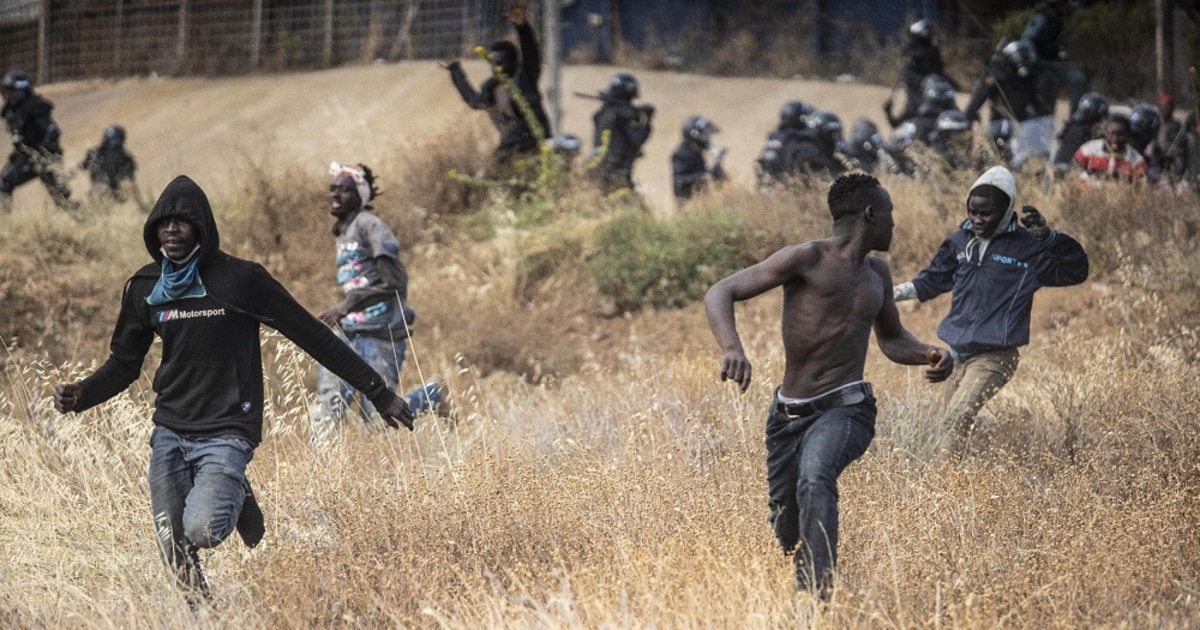39 reporters from The Washington Post, Der Spiegel and a number of Western investigative news portals investigated the situation on the spot for a year. Their experiences, just published, are alarming. Ursula von der Leyen, President of the European Commission, visited Tunisia just one year ago, accompanied by Dutch Prime Minister Mark Rutte and Italian Prime Minister Giorgia Meloni. An agreement was reached with President Kais Saied, who heads the authoritarian regime: if he stops African migrants trying to reach Europe, he can get up to 1 billion euros, more than 100 million of which will be spent on border protection. Single.
The promise and money worked out quickly. Tunisian police and the National Guard collected thousands of migrants, put them on buses and took them to the Sahrawi border. Videos were also filmed of this, where the cries of the unfortunate can be clearly heard: “Don't leave her here, it's a desert, there's no water or food here.”. There are 11 confirmed cases in Tunisia, each involving at least 100 people. The detained migrants were taken near the Libyan and Algerian borders and left to their fate. In the arid desert in winter, the frost is severe at night and the temperature ranges between 50-60 degrees during the day. In this way, quite a few people become hungry and exhausted. Or be tortured or sexually assaulted – or simply sold into slavery.
One victim said they were thrown into a truck in the middle of the desert, saying: “The lights are there, Algeria is there. Go, because if we see you again, we will shoot you dead…” According to data from the United Nations mission in Libya, the Tunisians transported about 9,000 people across the border until the end of March of this year, at least 29 of whom died.
Reporters spoke with more than half a hundred victims, who told what happened to them, even with their faces, but often with unrecognizable appearances. The overall picture: It is not a matter of individual transgressions, but of a system. In Tunisia, Morocco and Mauritania, thousands of black people are arrested and placed in the desert or on the border. A specific example of this is the arrest of a black American English teacher on the street in Rabat, Morocco. Although he showed his documents, he was taken with other blacks and was able to escape only after a long struggle. According to eyewitnesses, regular persecution of black people takes place in all three countries. They are arrested on the street, sent to a prison cell – and then into the desert after prison.
There is hardly a country capable of solving this task as effectively as Morocco, which lives under an authoritarian regime. According to their official data, their security forces arrested more than 75,000 migrants last year. In any case, the authorities deny that they are violating human rights. They say, “Transporting immigrants to other cities” Its goal is only to protect them from human traffickers and keep them away from dangerous, forested and desert areas, and ethnic considerations do not play any role. On the other hand, Frontex, the European Union's border protection agency, documented in writing last year that there is too much selection based on race in prosecuting migrants in these countries. Despite the series of clear violations, the European Union not only stopped its aid to Morocco, but increased it. Between 2015 and 2020, the country received one and a half billion euros from the European Union to detain migrants. Gil Arias, who was vice president of Frontex between 2006 and 2015, told reporters that the implicit agreement was well known: they would take back the refugees, if necessary using unfair means, “No one will ask about it.”. Arias said that during his time at Frontex, this was the starting point.
The Spaniards are struggling to stop immigration to the Canary Islands. Nearly 16,000 additional refugees have arrived there this year, many of them from Mauritania. In February, Spanish Prime Minister Pedro Sánchez and Ursula von der Leyen traveled to the Mauritanian capital and promised the country an additional €500 million if it could “manage” migration. On the eve of the visit, the European Parliament recorded in its resolution that there are countries where migrants are subjected to arbitrary imprisonment and torture and then are deported en masse to Senegal and Mali. In Mali, jihadist gangs are terrorizing the population, Wagner's Russian mercenaries are stationed alongside them, and brutal executions are on the agenda. In such circumstances, even lawful expulsion is unlawful.
According to the international fact-finding investigation, the relevant EU member states and the European Commission not only know what is happening, but are also providing the necessary tools and training to this end, as well as financial resources. Moreover, as in Morocco and Mauritania, even Spanish police officers participate in operations against migrants.












































